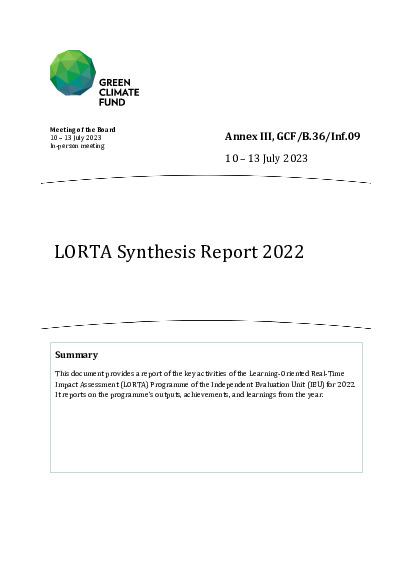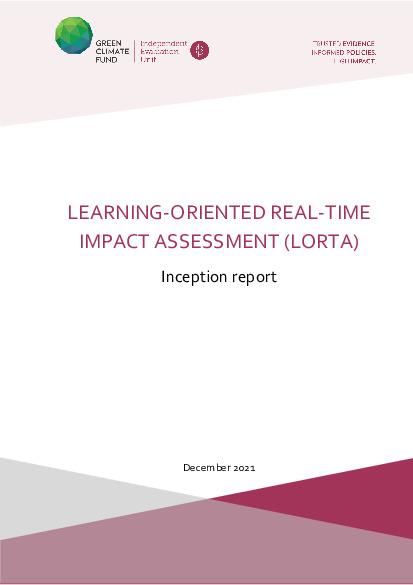SAP023
River Restoration for Climate Change Adaptation (RIOS)
River Restoration for Climate Change Adaptation (RIOS)
River restoration: This evaluation assesses the effectiveness of restoring rivers and improving forest connectivity to increase adaptive capacity of vulnerable communities. In Mexico, over half of the watersheds have degraded rivers. The deterioration of soil quality and the hydrological cycle disruption is mainly due to intensive agricultural and livestock activities combined with climate change. In the last years, there has been an increase in extreme weather events which are affecting watersheds (floods, landslides, droughts), and the negative ecological, economic, and social impacts are expected to be exacerbated. The evaluation will focus on learning about vulnerability of target population and monitor project benefits and co-benefits.
-
TopicEcosystem & reforestation
-
Project componentGrants through Request-for-Proposals
-
Impact evaluation designTo be determined
-
Target beneficiaries6,000 people in vulnerable communities
Timeline
Onboarded to LORTA
Jun 2021
Baseline data collected
Sep 2023
Baseline report to be published
Jun 2024
Endline report to be published
Sep 2027
One region
- Latin America and the Caribbean
One country
- Mexico
Reports

LORTA Synthesis Report 2022
19 Jun 2023
This document provides a report of the key activities of the LORTA Programme for 2022. It is Annex III of a report of the key activities of the Independent Evaluation Unit (IEU) for the period of 1 January to 30 April 2023. It reports on the IEU’s outputs and achievements in line with its Board-approved work plan for 2023.

LORTA Inception Report 2021
The 2021 inception report for the Learning-Oriented Real-Time Impact Assessment (LORTA) programme highlights the programme's objectives, methodologies, and progress. The report discusses the design and implementation strategies, evaluates the performance of ongoing projects, and provides insights into the effectiveness of the interventions and their contributions to climate resilience and low-emission development.
Impact
Early findings from LORTA's baseline data collection for SAP023 are expected to be released later this year.
To be shared in 2027.
To be shared in 2027.
Details
The project: GCF-funded project SAP023 is aligned with the national scope of Mexico to address the challenges of climate change and support the transition to a low carbon emission economy, by seeking to increase adaptive capacity in watersheds vulnerable to climate change through river restoration and forest connectivity. More specifically, its objective is to increase adaptive capacity in two coastal watersheds: Ameca-Mascota in the state of Jalisco and Jamapa in the state of Veracruz.
Impact evaluation: The impact evaluation primarily targets grants allocated through a call for proposals, specifically focusing on subprojects. Initial findings reveal challenges faced by vulnerable groups, particularly marginalized communities in watersheds, including indigenous populations and women. These challenges highlight the need to address climate impacts and foster sustainable practices.